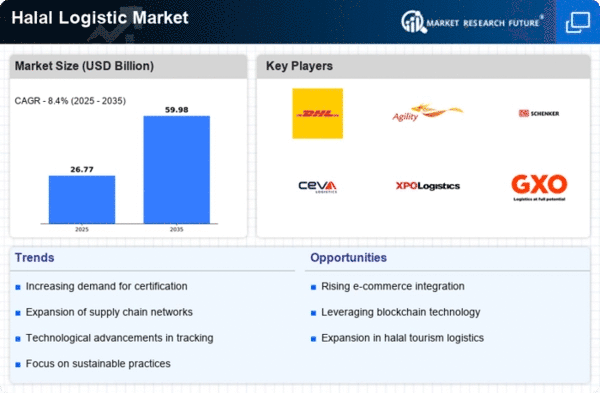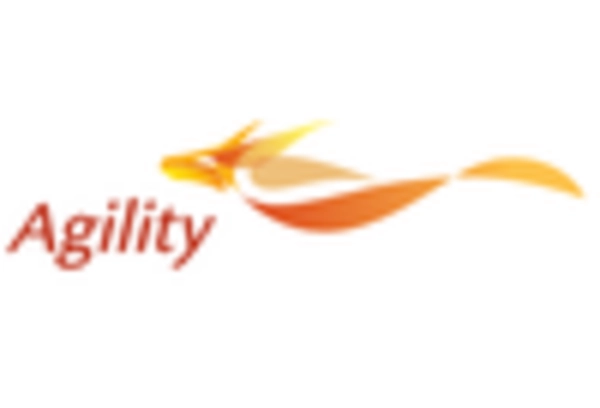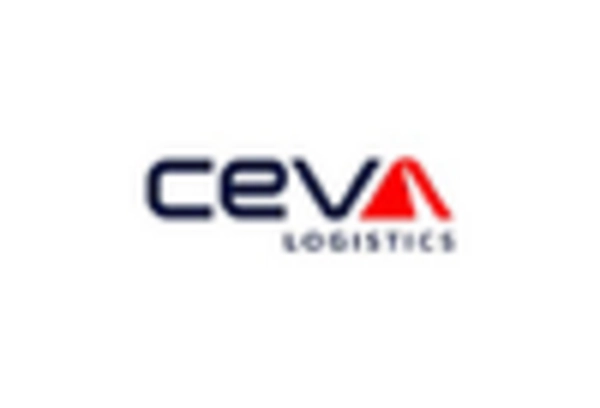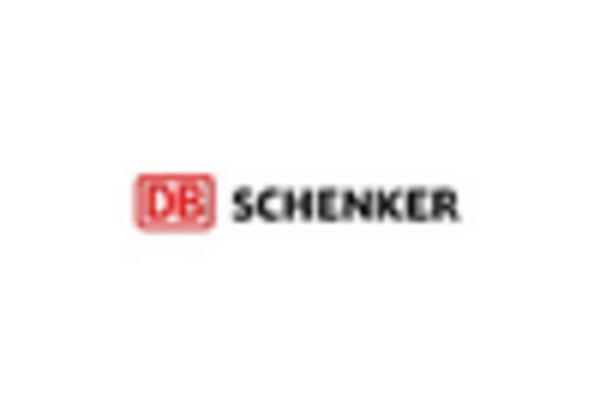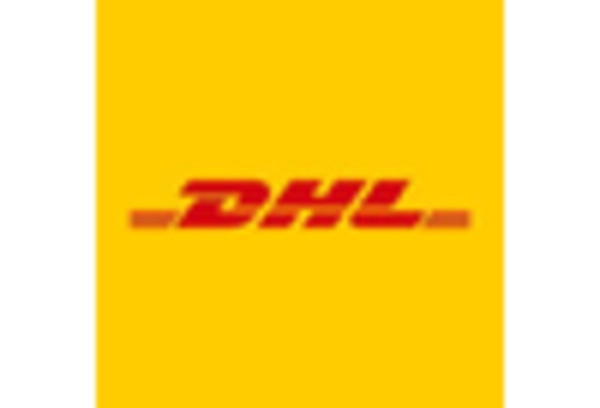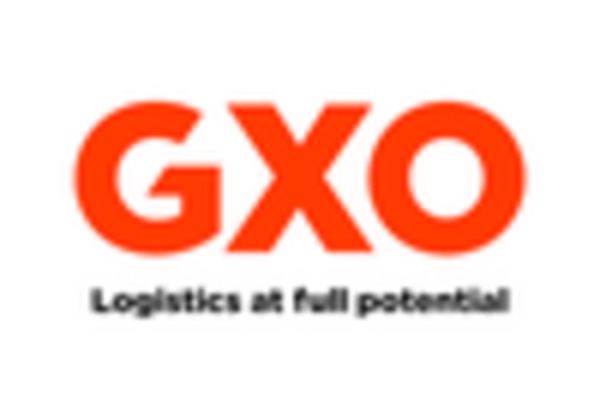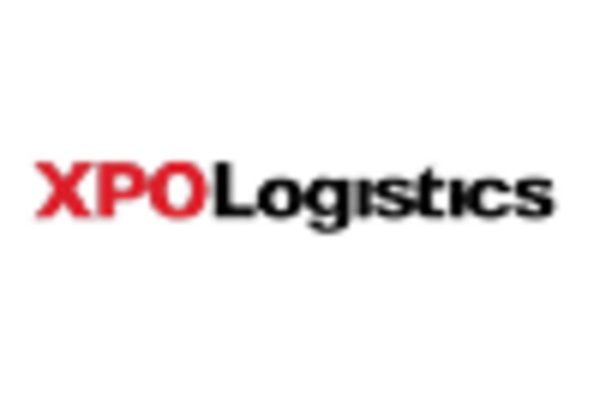The Halal Logistic Market is currently characterized by a dynamic competitive landscape, driven by increasing consumer demand for Halal products and the necessity for compliance with stringent regulatory standards. Key players such as DHL (DE), Kuehne + Nagel (CH), and Agility (KW) are strategically positioning themselves through innovation and regional expansion. DHL (DE) has focused on enhancing its supply chain capabilities to cater to the growing Halal market, while Kuehne + Nagel (CH) emphasizes digital transformation to streamline operations. Agility (KW) is leveraging partnerships with local suppliers to ensure compliance and quality assurance, collectively shaping a competitive environment that prioritizes reliability and efficiency.In terms of business tactics, companies are increasingly localizing their operations to better serve regional markets, optimizing supply chains to reduce costs and improve service delivery. The market appears moderately fragmented, with several key players exerting influence through strategic initiatives. This structure allows for a diverse range of offerings, catering to various segments within the Halal logistics space.
In November DHL (DE) announced the launch of a dedicated Halal logistics service aimed at enhancing its operational capabilities in the Middle East. This strategic move is significant as it aligns with the growing demand for Halal-certified products in the region, positioning DHL (DE) as a leader in this niche market. The establishment of specialized services is likely to enhance customer trust and expand market share.
In October Kuehne + Nagel (CH) unveiled a new digital platform designed to facilitate real-time tracking of Halal shipments. This initiative underscores the importance of transparency and traceability in the Halal logistics sector, potentially setting a new standard for operational excellence. By integrating advanced technology, Kuehne + Nagel (CH) aims to enhance customer experience and operational efficiency, which could lead to increased loyalty and market penetration.
In September Agility (KW) entered into a strategic partnership with local Halal certification bodies to streamline compliance processes. This collaboration is crucial as it not only ensures adherence to Halal standards but also enhances the credibility of Agility's logistics services. Such partnerships may serve as a competitive differentiator, allowing Agility (KW) to offer superior service in a market where compliance is paramount.
As of December the Halal Logistic Market is witnessing trends such as digitalization, sustainability, and AI integration, which are redefining competitive dynamics. Strategic alliances are increasingly shaping the landscape, enabling companies to leverage shared resources and expertise. Moving forward, competitive differentiation is likely to evolve from traditional price-based competition to a focus on innovation, technology, and supply chain reliability, reflecting the changing preferences of consumers and regulatory environments.


